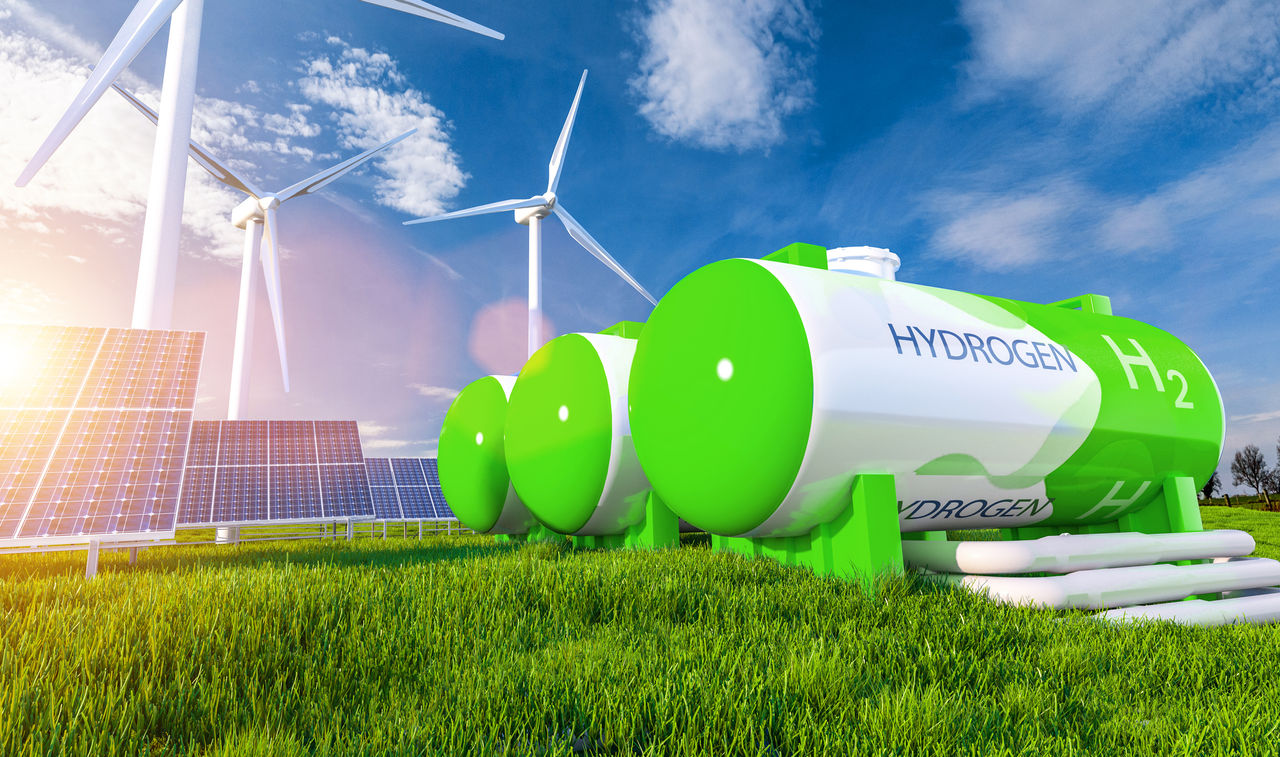In this article
Hydrogen at the Heart of Europe's Net-Zero Ambitions
Hydrogen is leading the way in the lineup of green energy carriers. Often referred to as the 'fuel of the future,' hydrogen has the potential to transform numerous sectors, from power to heavy transportation and HVAC to EPC projects (Engineering, Procurement, and Construction), offering a clean, versatile and efficient energy alternative. Its strength lies in its inherent green properties, adaptability and ability to integrate seamlessly with current infrastructures and systems.
By introducing the Net-Zero Industry Act, Europe is taking a significant step towards a green future, with hydrogen highlighted as key to achieving carbon neutrality by 2050. This focus on hydrogen reflects Europe's goal to lead the global clean energy shift.

Hydrogen Production in Europe
Traditionally, Europe has relied heavily on 'grey hydrogen,' produced by means of natural gas and steam methane reforming. While efficient, this method emits significant amounts of CO2. Recently, there has been a pronounced shift towards 'green hydrogen.' Green hydrogen is produced using electrolysis, where electricity (sourced from renewable resources) is used to split water into hydrogen and oxygen, which results in zero carbon emissions.
Recognizing the potential environmental benefits, Europe is pushing for greener hydrogen production methods. Several countries, including the UK, Germany, France and the Netherlands, have rolled out national hydrogen strategies that emphasize the production of green hydrogen. Significant investments are being directed towards increasing the capacity of electrolyzers and ramping up renewable energy sources to power them.
Challenges to Hydrogen Adoption
The current production capacity of electrolyzers is limited. Scaling up would require more machines and advancements in electrolysis to make it more efficient and cost-effective. The infrastructural demands are substantial, from building a widespread network of hydrogen pipelines and refueling stations for vehicles to retrofitting industries for hydrogen use.
At present, green hydrogen production is more expensive than its grey or blue counterparts. For hydrogen to become the primary energy carrier, there must be a significant reduction in its production costs or a system of incentives and subsidies to promote its adoption. Europe's commitment to overcoming these challenges is evident in its policies and investments.
Legislative Measures to Accelerate Hydrogen Adoption
The UK Government's Hydrogen Strategy recognises the potential to overcome some of the trickiest decarbonisation challenges facing our economy – including our vital industrial sectors – and secure economic opportunities across the UK, low carbon hydrogen has a critical role to play in our transition to net zero.
Hydrogen in the (European) Net-Zero Industry Act
The Net-Zero Industry Act stands as a statement of Europe’s commitment. This initiative, a core element of the Green Deal Industrial Plan, aims to ramp up the EU's hydrogen manufacturing capabilities to support a sustainable energy system and achieve energy independence for the EU. The Act targets that by 2030, the EU's manufacturing capacity for net-zero technologies should meet at least 40% of its requirements. This aligns with the EU's commitment to meeting its 2030 climate and energy targets.
“We need a regulatory environment that allows us to scale up the clean energy transition quickly. The Net-Zero Industry Act will do just that. It will create the best conditions for those sectors that are crucial for us to reach net-zero by 2050: technologies like wind turbines, heat pumps, solar panels, renewable hydrogen, as well as CO2 storage. Demand is growing in Europe and globally, and we are acting now to make sure we can meet more of this demand with European supply.”
President Ursula von der Leyen - 16/03/2023 (Net-Zero Industry Act (europa.eu)
An essential element in Europe's decarbonization efforts, the legislation seeks to prioritize research, development and deployment of hydrogen-based solutions across the continent.
The Net-Zero Industry Act also allocates significant funds for developing a suitable hydrogen infrastructure. This includes support for building hydrogen refueling stations, retrofitting industries to accommodate hydrogen as a primary fuel source and setting up production facilities.
Recognizing the complex nature of the hydrogen economy, the Act emphasizes the importance of collaboration between countries, industries and research institutions. It promotes knowledge sharing, joint ventures and cooperative projects to accelerate the adoption and integration of hydrogen solutions.
In line with this, the European Hydrogen Strategy has set ambitious goals. It aims to produce up to 10 million tonnes of renewable, green hydrogen within the EU, supplemented by another 10 million tonnes through imports by 2030.
Moving from policy to practice, the European Clean Hydrogen Alliance has identified 840 hydrogen projects spanning various sectors. Moreover, 16 EU Member States have rolled out their national hydrogen strategies. According to EU climate policy chief Frans Timmermans, the EU and its collaborating countries are on track to exceed their initial target of installing a combined 40 GW of renewable hydrogen electrolyzers by 2030.
European Hydrogen Bank
To complement the Act, the Commission has outlined plans for the European Hydrogen Bank, set to launch pilot auctions for renewable hydrogen production through the Innovation Fund in Autumn 2023. The bank will offer new financing options to boost domestic and international renewable hydrogen production. Another goal is to provide investors with clear demand, supply and pricing metrics.
Most of Europe's hydrogen investments are still in the planning phase. There is a great need for clarity on demand. Although promising, hydrogen production through electrolysis has yet to be competitive with conventional methods. Therefore, these new EU legislative measures serve as a critical roadmap for accelerating the adoption of hydrogen technologies, providing the much-needed clarity and framework to transition from planning to action and ultimately making hydrogen a competitive and sustainable energy alternative for Europe.
ERIKS: Fueling Hydrogen Progress
With expertise across various product groups, including sealing and flow control, ERIKS collaborates with electrolyzer manufacturers and other key stakeholders. Our engineers rigorously test materials and tailor solutions to the unique challenges of hydrogen applications. What’s more, our comprehensive know-how speeds up the time to market for our partners—a crucial edge while hydrogen technology is gaining ground. As the EU shifts gears from policies to implementation, ERIKS will remain a committed partner, helping to take hydrogen technology from the drawing board to real-world use.
Read More About ERIKS Hydrogen Solutions here.
For more information, get in touch with your local ERIKS Service Centre who will be happy to discuss your options.
#ERIKS #LetsMakeIndustryWorkBetter #Hydrogen #NetZero

